45. In
my perception of the
Mayan calendar of the year consisting of months with 20 days
in each (excepting for the last one which carried only 5 days) there is
an eye-catching similarity between Pax (16 * 20 = 320)
and Vayeb (18 * 20 + 5 = 365 = 320 + 45):
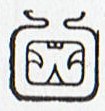 |
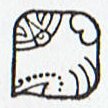 |
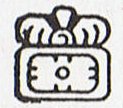 |
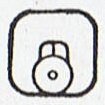 |
|
5
Tzek |
6
Xul |
7
Yaxkin |
8
Mol |
 |
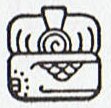 |
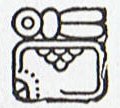 |
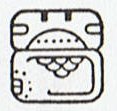 |
|
9
Ch'en |
10
Yax |
11
Sac |
12
Ceh |
 |
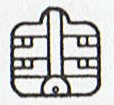 |
200 |
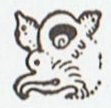 |
|
13
Mac |
14
Kankin |
15
Moan |
 |
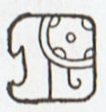 |
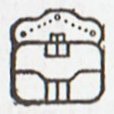 |
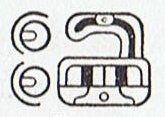 |
|
16 Pax |
17
Kayab |
18
Cumhu |
19
Vayeb |
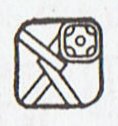 |
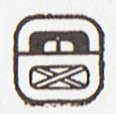 |
 |
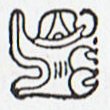 |
|
1 Pop |
2 Uo |
3 Zip |
4
Zotz |
I think these day numbers can be
counted from the northern spring equinox. *365 - *45 = *320 → the south pole
star Dramasa. If so then the ancient star Vega at the north pole in a way
would correspond to the modern star Dramasa at the south
pole.
 |
 |
 |
 |
 |
|
Ga8-1 |
Ga8-2 |
Ga8-3 |
Ga8-4 |
Ga8-5 (208) |
|
PLACE OF THE SUN |
|
KELB ALRAI (Dog of the Shepherd) =
β
Ophiuchi,
μ
Arae (268.1),
KEW HO (Nine Rivers) =
μ
Herculis
(268.6),
η
Pavonis (268.7),
APOLLYON =
ι
Scorpii
(268.9) |
MULIPHEN (Oaths) = γ Ophiuchi (269.0), BASANISMUS =
G Scorpii
(269.5),
PHERKARD (Dim One of the Two Calves) =
δ
Ursae Minoris
(269.9) |
PTOLEMY CLUSTER = M7 Scorpii
(270.5),
GRUMIUM (Lower Jaw) = ξ Draconis
(270.9) |
RUKBALGETHI GENUBI (Bending Claw) = θ Herculis
(271.1),
ξ Herculis (271.5),
ETAMIN (Head) =
γ
Draconis,
ν
Herculis (271.7),
ν
Ophiuchi (271.8) |
CAT'S EYE = NGC6543 Draconis
(272.2),
ζ Serpentis (272.4),
τ
Ophiuchi (272.9) |
 |
|
Dec 14 (*268) |
15 |
16 (350) |
17 |
18 |
|
"Nov 3 (*227) |
4 |
5 |
6 (310) |
7 |
|
OCT 11 |
12 |
13 |
14 |
15 (288) |
|
THE NAKSHATRA
VIEW: |
|
μ
Columbae (86.1),
SAIPH
(Sword) = κ Orionis (86.5),
τ
Aurigae,
ζ
Leporis (86.6) |
υ
Aurigae (87.1),
ν
Aurigae (87.2),
WEZN (Weight) =
β
Columbae,
δ
Leporis (87.7),
TZE (Son) =
λ
Columbae
(87.9) |
Ardra-6 (The Moist One)
/
ANA-VARU-8 (Pillar to sit by)
χ╣
Orionis,
ξ
Aurigae (88.1),
BETELGEUZE = α Orionis
(88.3),
ξ Columbae (88.5),
σ
Columbae (88.7)
ZUBEN ELGENUBI (α Librae)
|
η
Leporis (89.0),
PRAJA-PĀTI (Lord of Created Beings) =
δ
Aurigae,
MENKALINAN (Shoulder of the Rein-holder) =
β
Aurigae, MAHASHIM (Wrist) =
θ
Aurigae,
and
γ
Columbae (89.3),
π
Aurigae (89.4),
η
Columbae (89.7)
*48.0 = *89.4 - *41.4 |
μ Orionis (90.3),
χ▓ Orionis (90.5) |
|
June 15 |
16 |
17 (168 → 2 *
84) |
18 |
19 (*90) |
|
"May 5 |
6 |
7 (127) |
8 |
9 (*49) |
|
APRIL 12 |
13 (468) |
14 (104) |
15 (*390) |
16 (*26) |
 |
 |
 |
 |
 |
|
Ga1-22 |
Ga1-23 |
Ga1-24 |
Ga1-25 |
Ga1-26 |
.jpg)
 |
 |
 |
|
Ga8-6 |
Ga8-7 (210) |
Ga8-8 |
.jpg)
 |
|
PLACE OF THE SUN |
|
Winnowing Basket-7
(Leopard)
18h (273.4)
*232.0 = *273.4 - *41.4
NASH (Point) = γ Sagittarii
(273.7),
θ
Arae (273.8) |
ZHŌNGSHĀN = ο Herculis (274.0),
π
Pavonis (274.6) |
ι Pavonis (275.1),
POLIS = μ Sagittarii
(275.9)
MENKAR (α Ceti) |
|
Dec 19 (*273) |
20 (354) |
SOLSTICE |
|
░Dec 15
(*269) |
16 (350) |
17 |
|
'Nov 22
(*246) |
23 |
24 (328) |
|
"Nov 8 (*232) |
9 |
10 (314) |
|
OCT 16 |
17 (290 = 354
- 64) |
18 |
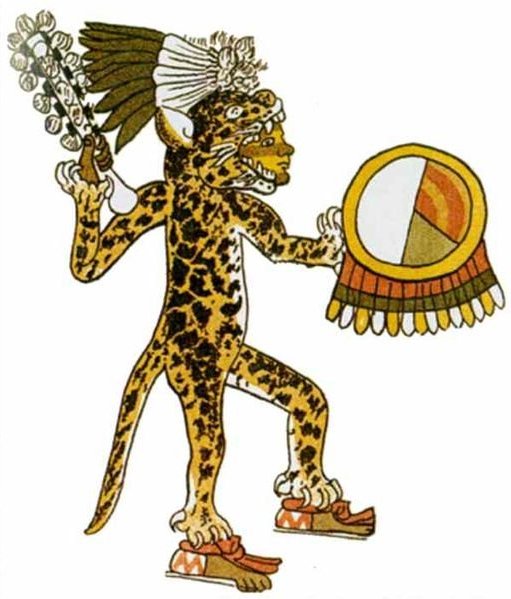 |
|
THE NAKSHATRA
VIEW: |
|
6h (91.3)
ν Orionis (91.4),
θ
Columbae (91.5),
π
Columbae (91.6) |
ξ Orionis
(92.5) |
Al Han'ah-4 (Brand)
/
Maru-sha-pu-u-mash-mashu-7
(Front of the Mouth of the Twins)
TEJAT PRIOR = η Gemini (93.4),
γ
Monocerotis
(93.5), κ Aurigae (93.6), κ
Columbae (93.8) |
|
June 20 (*91) |
SOLSTICE |
22 (*93) |
|
░June 16
(*87) |
17 (168) |
18 (*89) |
|
'May 24 (*64) |
25 |
26 (*66) |
|
"May 10 (*50) |
11 |
12 (*52) |
|
APRIL 17
(*27) |
18 (*393) |
19 (*29) |
 |
 |
 |
|
Ga1-27 |
Ga1-28 |
Ga1-29 |
|
Throwing
stick? |
 |
Phoenician
gimel |
 |
Greek
gamma |
Γ (γ) |
|
... In its unattested
Proto-Canaanite form, the letter [gimel]
may have been named after a weapon that was
either a staff sling or a throwing stick,
ultimately deriving from a Proto-Sinaitic
glyph ... Bertrand Russell posits that the
letter's form is a conventionalized image of
a camel. The letter may be the shape of the
walking animal's head, neck, and forelegs
[cfr the way Taurus normally is depicted].
Barry B. Powell, a specialist in the history
of writing, states 'It is hard to imagine
how gimel = 'camel' can be derived
from the picture of a camel ... The word
gimel is related to gemul, which
means 'justified repayment', or the giving
of reward and punishment.
The Swedish word gammal
means 'old' (and dry like a stick).
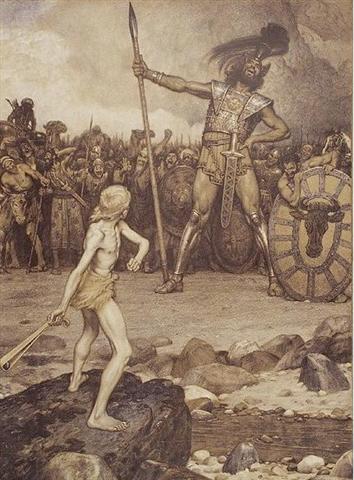
...
Tu'i Tofua was the son of Vakafuhu.
His mother was Langitaetaea, but she
was only one of the many young women whom
Vakafuhu had living behind the fences of
his dwelling. When Tu'i Tofua grew he
was given the first-born sons of all the
wives for his companions, and they all used
to play sika outside the enclosure of
Vakafuhu. They made their sika
of clean-peeled sticks and threw them in
turn along the
ground, they glanced them off a mound and
each one tried to make the longest throw.
One day while Vakafuhu
was sleeping off a kava-drinking those boys
were playing their game outside, and Tu'i
Tofua threw his sika. Then indeed
the enormous strength of Tu'i Tofua
made that sika fly over the fences
into his father's place.
It landed where the women
were and they all began to giggle, those
girls, and shriek and laugh. They did this
because they wanted that handsome youth to
come among them, they desired him. More than
his father they desired him. They fell with
joy upon the sika of their master's
son, and snapped it. When he came inside to
get it back they called out things that made
him embarrased. 'Haven't you got another
long thing there, Tu'i?' those women
said. 'This one's broken.' And they put
their hands across their faces and they
laughed ... |
In the year AD 2023 the planet Mercury will
arrive to λ Sagittarii
(Kaus Borealis) in
December 7 (341, *261), in
the day when Mars will be above Antares at ω Ophiuchi:
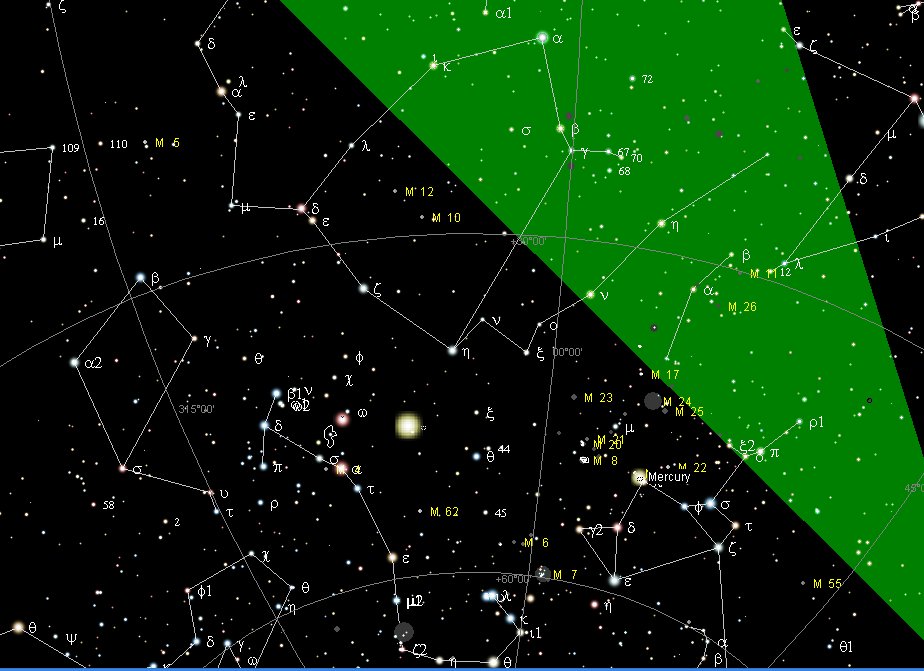
And in January 13 AD 2024 it will then be the turn of Mars to
reach Kaus Borealis (λ):
|
Egyptian
menchet |
 |
Phoenician
lamedh |
 |
Greek
lambda |
Λ (λ) |
|
... Wikipedia has no
information regarding the origin of the
Phoenician lamedh, but the
Egyptian 'cloth' hieroglyph (menchet)
is - I suggest - related to the 4 upside
down sky pillars. I.e. the basic element
of the 'covering' hieroglyph could have
indicated darkness:


... Men's
spirits were thought to dwell in the
Milky Way between incarnations. This
conception has been handed down as an
Orphic and Pythagorean tradition fitting
into the frame of the migration of the
soul. Macrobius, who has provided the
broadest report on the matter, has it
that souls ascend by way of Capricorn,
and then, in order to be reborn, descend
again through the 'Gate of Cancer'.
Macrobius talks of signs; the
constellations rising at the solstices
in his time (and still in ours) were
Gemini and Sagittarius: the 'Gate of
Cancer' means Gemini ...
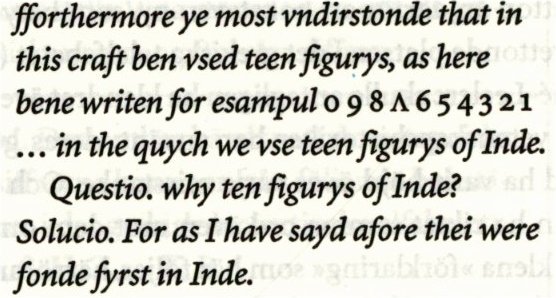

From the year 755 (when
Cancer had been at July 11 according to
the Mayas) to AD 1842 (my assumed
baseline for the rongorongo texts) there
were around (1842 - 755) / 71 = 15
precessional days. This seems to point
to the time of the Bull, when in JANUARY
31 the old year would end (terminate).
192 (JULY 11) - 31 = 161 (JUNE 10):
...
Midsummer is the flowering season of the
oak, which is the tree of endurance and
triumph, and like the ash is said to
'court the lightning flash'. Its roots
are believed to extend as deep
underground as its branches rise in the
air - Virgil mentions this - which makes
it emblematic of a god whose law runs
both in Heaven and in the Underworld ...
The month, which takes its name from
Juppiter the oak-god, begins on June
10th and ends of July 7th. Midway
comes St. John's Day, June 24th, the day
on which the oak-king was sacrificially
burned alive. The Celtic year was
divided into two halves with the second
half beginning in July, apparently after
a seven-day wake, or funeral feast, in
the oak-king's honour ...
... The Fijian
barkcloth that in the end captures the
chief represents his capture of the
land: upon installation, he is said to
hold the 'barkcloth of the land' (masi
ni vanua). The barkcloth thus has
deeper significance. In general ritual
usage, barkcloth serves as 'the path of
the god'. Hanging from the rafters at
the rear, sacred end of the ancient
temple, it is the avenue by which the
god descends to enter the priest ...
There is still more to the barkcloth.
The barkcloth which provides access for
the god/chief and signifies his
sovereignity is the preeminent feminine
valuable (i yau) in Fiji. It is
the highest product of woman's labor,
and as such a principal good of
ceremonial exchange (soolevu).
The chief's accession is mediated by the
object that saliently signifies women
... |
This day, January 13, can be counted as number 365 + 13 = 378
(= 260 + 118)
because the synodic orbit of
Saturn
is 378 days.
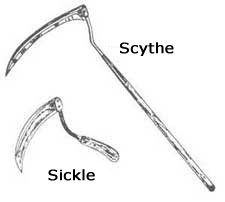
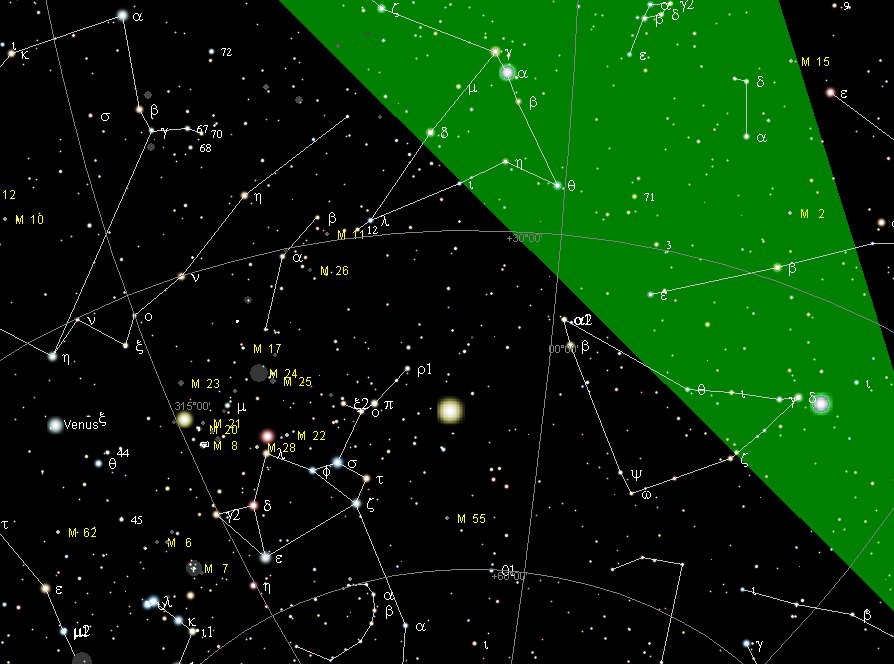

 |
 |
 |
|
Ga8-9 |
Ga8-10 |
Ga8-11 (214) |
|
PLACE OF THE SUN |
|
η Sagittarii (276.9) |
KAUS MEDIUS
= δ Sagittarii,
κ Lyrae (277.5),
TUNG HAE (Heavenly Eastern Sea) = η
Serpentis
(277.7),
SHAOU PIH (Minor Minister) = φ Draconis
(277.8),
KWEI SHE = χ Draconis
(277.9) |
φ
Oct. (278.1),
KAUS AUSTRALIS
=
ε Sagittarii
(278.3),
ξ Pavonis (278.4),
AL ATHFAR (The Talons of the Falling Eagle)
= μ Lyrae
(278.6)
*237.0 = *278.4 - *41.4 |
|
Dec 22 |
23 (357) |
CHRISTMAS EVE |
|
'Nov 25
(*249) |
26 (330) |
27 |
|
"Nov 11
(*235) |
12 (316) |
13 |
|
OCT 19 |
20 (293) |
21 (*214) |
|
THE NAKSHATRA
VIEW: |
|
APRIL 20 (*30) |
21 (111) |
22 (477) |
|
FURUD = ζ Canis Majoris
(94.9) |
Well-22 (Tapir)
/
Arkū-sha-pu-u-mash-mashu-8 (Back of the
Mouth of the Twins)
δ
Columbae (95.2),
TEJAT POSTERIOR = μ Gemini, MIRZAM (The
Roarer) = β Canis Majoris (95.4),
CANOPUS (Canopy)
= α Carinae
(95.6),
ε
Monocerotis (95.7),
ψ1
Aurigae (95.9)
*54.0 = *95.4 - *41.4 |
No star listed (96) |
|
June 23 (*94) |
ST JOHN'S DAY (*460) |
25 (176) |
|
'May 27 |
28 (*68) |
29 (149) |
|
"May 13 (133) |
14 (*54) |
15 (500) |
 |
 |
 |
|
Ga1-30 |
Ga2-1 |
Ga2-2 |

 |
 |
 |
 |
| Ga8-12 |
Ga8-13 (216) |
Ga8-14 |
Ga8-15 |
|
PLACE OF THE SUN |
|
KAUS BOREALIS = λ Sagittarii (279.3)
Dec 7 AD 2023 (*261 → 9 * 29)
MERCURY
Jan 13 AD 2024 (300 + 78 = 378 → Saturn)
MARS |
ν Pavonis (280.4), κ Cor. Austr. (280.9)
*239.0 = *280.4 - *41.4 |
Abhijit-22 (Victorious)
θ Cor. Austr. (281.0), VEGA = α Lyrae (281.8) |
No star listed (282) |
| Dec 25 |
26 (360) |
27 |
28 |
| 'Nov 28 |
29 (333) |
30 (*254) |
'Dec 1 |
| "Nov 14 |
15 |
16 (*240) |
17 (321) |
|
OCT 22 (295) |
23 (*216) |
24 |
25 |
|
THE NAKSHATRA
VIEW: |
| β Monocerotis, ν Gemini (97.0) |
No star listed (98) |
ψ3 Aurigae (99.4), ψ2 Aurigae (99.5)
GEMMA (α Cor. Bor.) |
ψ4 Aurigae (100.5), MEBSUTA (Outstretched) = ε Gemini (100.7) |
|
... In other words, the ancient Druidic religion based on the oak-cult will be swept away by Christianity and the door - the god Llyr - will languish forgotten in the Castle of Arianrhod, the Corona Borealis. This helps us to understand the relationship at Rome of Janus and the White Goddess Cardea who is ... the Goddess of Hinges who came to Rome from Alba Longa. She was the hinge on which the year swung - the ancient Latin, not the Etruscan year - and her importance as such is recorded in the Latin adjective cardinalis - as we say in English 'of cardinal importance - which was also applied to the four main winds; for winds were considered as under the sole direction of the Great Goddess until Classical times ... |
| June 26 (177) |
27 |
28 (*464) |
29 (*100) |
| 'May 30 (150) |
31 (*436) |
'June 1 |
2 (*73) |
| "May 16 (136) |
17 (*422) |
18 |
19 (*59) |
| APRIL 23 |
24 (*399) |
25 (480) |
26 (*36) |
 |
 |
 |
 |
| Ga2-3 |
Ga2-4 |
Ga2-5 |
Ga2-6 (36) |
|
ORBIT OF MARS AD 2023-2024 |
|
April 14 (180
- 76) |
*16 |
April 30 (196 - 76) |
*133 |
Dec 7 (*261 = 341 - 80) |
*30 |
Jan 13 (378 = 454 - 76) |
|
Mebsuta (*100) |
Pollux (*116) |
ω
Ophiuchi (*249) |
Kaus Borealis (*279) |
|
Ga2-6
(36) |
Ga2-22
(52) |
Ga7-16
(185 = 265 - 80) |
Ga8-12
(215) |
 |
 |
 |
 |
|
APRIL 26 (116) |
MAY
12 (132) |
SEPT 22 (EQUINOX) |
OCT 22 (295) |

|

























.jpg)

.jpg)
























